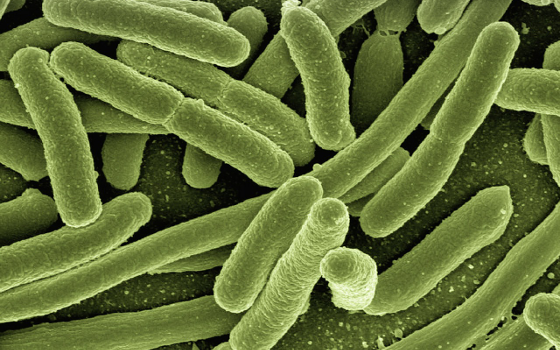Researchers discover new antibiotics by sifting through the human microbiome
- Details
- Category: Research
Most antibiotics in use today are based on natural molecules produced by bacteria - and given the rise of antibiotic resistance, there's an urgent need to find more of them. Yet coaxing bacteria to produce new antibiotics is a tricky proposition. Most bacteria won't grow in the lab. And even when they do, most of the genes that cause them to churn out molecules with antibiotic properties never get switched on.
Crowdsourcing a better prostate cancer prediction tool
- Details
- Category: Research
Knowing the likely course of cancer can influence treatment decisions. Now a new prediction model published today in Lancet Oncology offers a more accurate prognosis for a patient's metastatic castration-resistant prostate cancer. The approach was as novel as the result - while researchers commonly work in small groups, intentionally isolating their data, the current study embraces the call in Joe Biden's "Cancer Moonshot" to open their question and their data, collecting previously published clinical trial data and calling for worldwide collaboration to evaluate its predictive power.
New research shows promise for immunotherapy as HIV treatment
- Details
- Category: Research
Immunotherapy has revolutionized treatment options in oncology, neurology, and many infectious diseases and now there is fresh hope that the same method could be used to treat or functionally cure HIV, according to two related studies from Perelman School of Medicine at the University of Pennsylvania, the University of Alabama at Birmingham (UAB), and the National Institutes of Health (NIH).
Genetically engineering disease-fighting cells
- Details
- Category: Research
The human body produces T cells to recognize and fight disease. Each T cell has a unique T cell receptor (or TCR) on its surface that surveils small fragments of proteins presented by other cells. Upon detecting evidence of cancer or infection, a subset of T cells binds the diseased cells and orchestrates their elimination. When tumors and infections cannot be eradicated naturally, researchers employ immunotherapies to boost the immune system's effectiveness.
Researchers discover way to inhibit major cancer gene
- Details
- Category: Research
Researchers at the University of Illinois at Chicago have identified a new way to block the action of genetic mutations found in nearly 30 percent of all cancers. Mutations in genes for the RAS family of proteins are present in nearly 90 percent of pancreatic cancers and are also highly prevalent in colon cancer, lung cancer and melanoma, the most dangerous kind of skin cancer.
Pancreatic cancer set to become third biggest cancer killer in EU next year
- Details
- Category: Research
The number of deaths from pancreatic cancer will overtake breast cancer mortality rates in the EU in 2017, a study has found. The findings, recently presented at UEG Week 2016, mean that pancreatic cancer will become the third leading cause of death from cancer in the EU behind lung and colorectal cancer. Pancreatic cancer mortality rates are increasing in many countries across the EU and it is estimated that 91,500 deaths will occur from the disease next year, compared with 91,000 from breast cancer.

Engineers design a new weapon against bacteria
- Details
- Category: Research
Over the past few decades, many bacteria have become resistant to existing antibiotics, and few new drugs have emerged. A recent study from a U.K. commission on antimicrobial resistance estimated that by 2050, antibiotic-resistant bacterial infections will kill 10 million people per year, if no new drugs are developed.
More Pharma News ...
- Raising 'good cholesterol' not as effective as lowering 'bad cholesterol'
- Facebook updates could help understand - and potentially treat - mental health disorders
- New compound shows promise in treating multiple human cancers
- Reshaping the future of global clinical trials practice
- Anti-inflammatory drugs could help treat symptoms of depression
- Depriving deadly brain tumors of cholesterol may be their Achilles' heel
- MS drug may reverse some physical disability